How to Start an Online Business in 2025: Complete Beginner’s Guide
By Lucas VuongDigital Marketing & Growth Strategy Lead, Pixel Commerce Studio
November 18, 2025
Learn how to start an online business in 2025 with Amazon dropshipping, FBA, Shopify, Facebook Marketplace, Etsy and eBay. Step-by-step guide with costs, tools, and strategies.
Introduction
The question of how to start an online business in 2025 is more relevant than ever. With e-commerce continuing its rapid global expansion, platforms like Amazon, Shopify, Facebook Marketplace, Etsy and eBay are not just marketplaces; they are entire ecosystems offering unprecedented opportunities for new entrepreneurs. Furthermore, consumer behavior has evolved. Shoppers are now interacting with brands across multiple devices and platforms, creating new and diverse avenues to build profitable and resilient businesses.
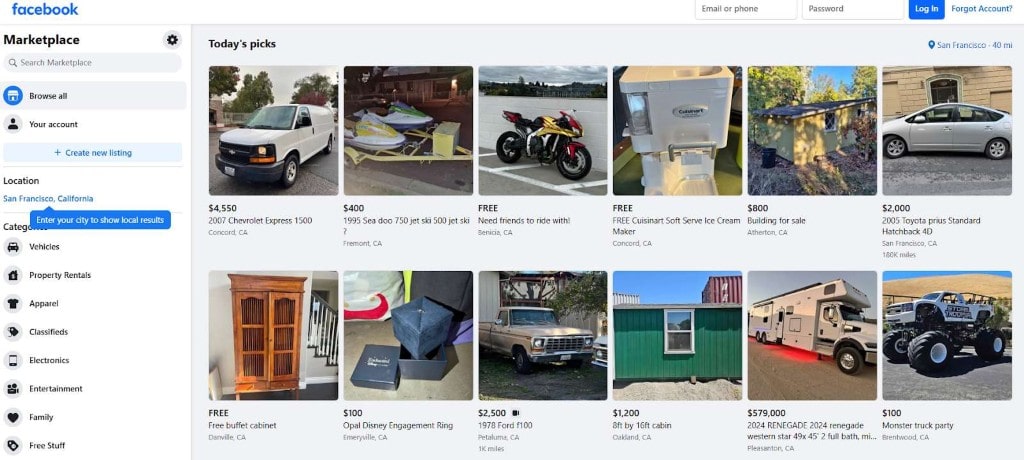
Starting an online business no longer requires massive capital or advanced technical skills. The barriers to entry have been dramatically lowered. Most importantly, with the help of affordable digital tools, automation, and sophisticated third-party fulfillment services, it is now possible for anyone to get started from the comfort of their own home. The digital landscape of 2025 is more accessible and fertile than ever before.
In this comprehensive guide, we’ll explore the best online business models for the year, including:
- Amazon dropshipping and FBA
- Why Etsy Matters for Brands in 2025
- Shopify with Shop Pay & Shoppay
- How to sell on Facebook Marketplace
- eBay UK, Germany, and global expansion
- How to create an Amazon storefront

In addition, we’ll highlight the typical costs, essential tools, and step-by-step strategies to ensure your new business is not only launched but is also optimized for sustainable growth in today’s dynamic, digital-first economy.
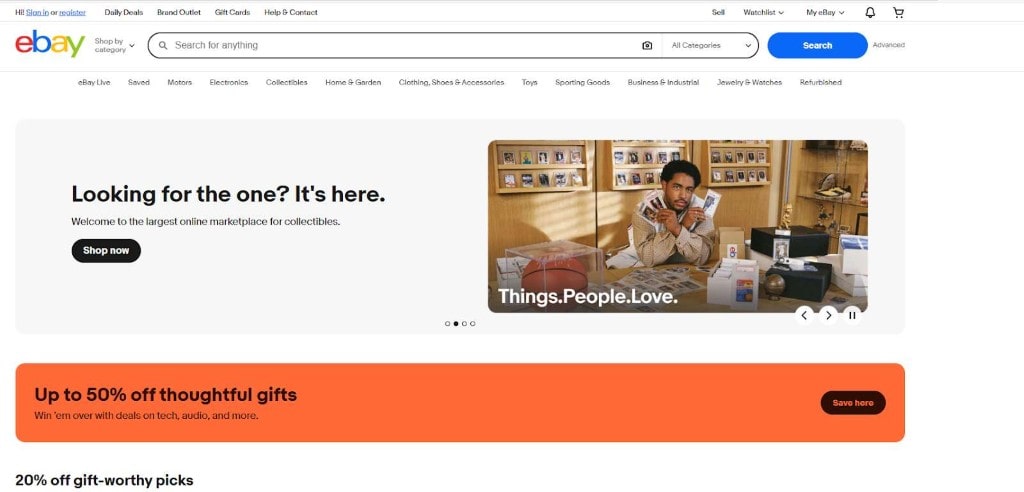
Section 1: Amazon Dropshipping — Pros and Cons
Amazon remains the biggest and most dominant marketplace in 2025, with millions of sellers and billions in annual revenue. One of the easiest and most appealing ways to enter this ecosystem is through Amazon dropshipping.
How it works:
You list products on the Amazon platform without ever holding any physical inventory yourself. When a customer places an order, you simply notify your supplier, who then ships the product directly to the customer. This model eliminates the need for a warehouse and removes the complexities of packaging and shipping.
Pros:
- Low upfront investment: You only purchase the product after it has already been sold, which minimizes financial risk.
- Wide product selection: You can offer a massive range of products without worrying about storage or inventory management.
- Easy to scale: It's simple to add new products to your store as your business grows.
Cons:
- High competition: Popular products are often saturated with sellers, making it difficult to stand out.
- Thin profit margins: The convenience of dropshipping often comes at the cost of lower profit margins, as you are not buying in bulk.
- Amazon’s strict rules: The platform has very specific policies regarding dropshipping, and a single violation can lead to a suspended account.

Section 2: What Is FBA (Fulfillment by Amazon)?
Many new sellers hear the term but are unsure of what it means. So, what is FBA (Fulfillment by Amazon)? FBA is a service that allows you to send your products in bulk to Amazon’s fulfillment centers. Once there, Amazon takes over the entire back-end process, handling storage, packaging, shipping, customer service, and even returns.
Benefits of FBA:
- Prime eligibility: Products enrolled in FBA are automatically eligible for Amazon Prime's two-day shipping, which is a major draw for customers and can significantly boost sales.
- Less manual work: It frees up your time from the tedious tasks of picking, packing, and shipping, allowing you to focus on product research, marketing, and growing your brand.
- Global reach: FBA makes it easy to expand your business into other countries through the Amazon Canada, Amazon UK, and Amazon Germany marketplaces.
Furthermore, while FBA has fees for storage and fulfillment, this service can save you significant time and effort. Most importantly, it helps beginners scale quickly and efficiently, giving them a professional edge over those who self-fulfill.
Section 3: Amazon Canada and Amazon.ca Expansion
In 2025, global expansion is more accessible than ever before. For US-based sellers, expanding to Amazon Canada (amazon.ca) is an excellent way to tap into a growing market with less competition.
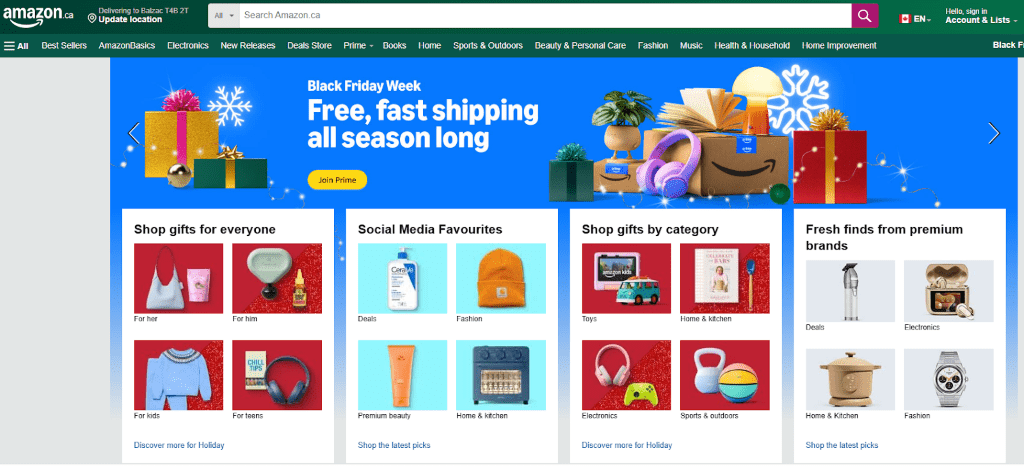
Why Amazon.ca is powerful:
- Growing base of online shoppers: Canada’s e-commerce market is expanding, presenting a huge opportunity for growth.
- Less crowded: The Canadian marketplace is less saturated with sellers compared to the US, making it easier to gain visibility.
- Easy cross-border logistics: Amazon's fulfillment centers and logistics network make cross-border shipping and inventory management seamless.
Furthermore, creating localized listings in Canadian English and pricing your products in CAD improves customer trust and conversion rates. Most importantly, expanding to Amazon.ca diversifies your revenue streams and reduces your dependence on a single market.
Section 4: How to Create an Amazon Storefront
An Amazon storefront is essentially your own branded mini-website right inside the Amazon marketplace. It’s a powerful tool that helps you tell your brand’s story and showcase your products in a professional and compelling way.
Steps to Create a Storefront:
- Sign up for Amazon Brand Registry: This is a prerequisite for creating a storefront and helps protect your intellectual property.
- Upload your branding: Add your logo, banner images, and brand story to make your store unique.
- Add product categories and collections: Organize your products into different sections and create curated collections to make shopping easier for customers.
- Optimize with keywords: Use relevant keywords in your storefront’s copy to improve its visibility within Amazon’s search results.
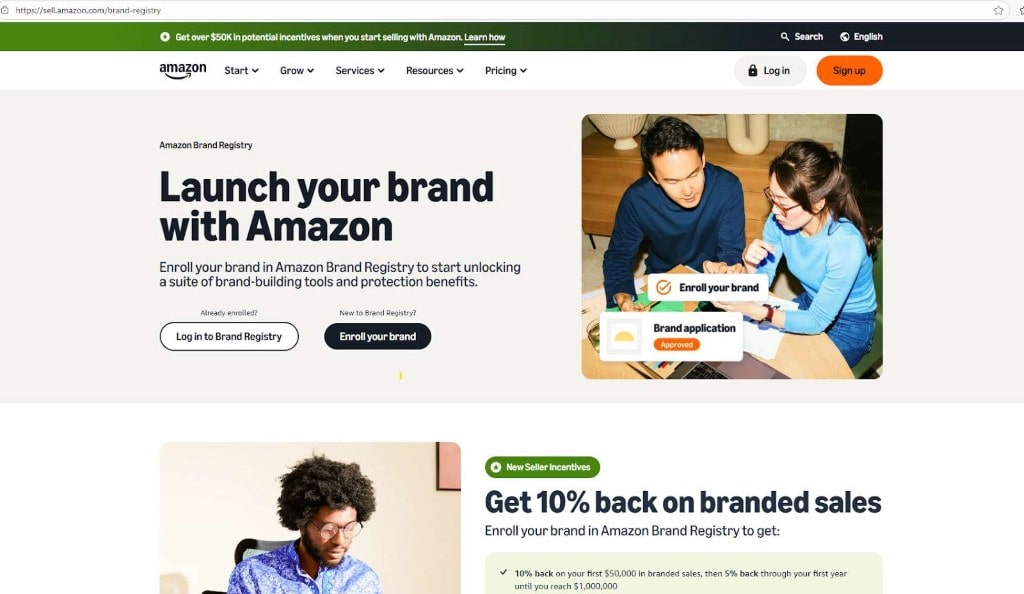
Section 5: Expanding Your Brand on Etsy in 2025
Etsy has become one of the most powerful platforms for independent brands, creators, and small businesses looking to reach a global audience that values handmade, unique, and aesthetic-driven products. In 2025, Etsy continues to attract millions of buyers searching for items that feel personal, authentic, and thoughtfully curated — making it an ideal marketplace for beauty brands, accessories, handmade items, and customizable products.
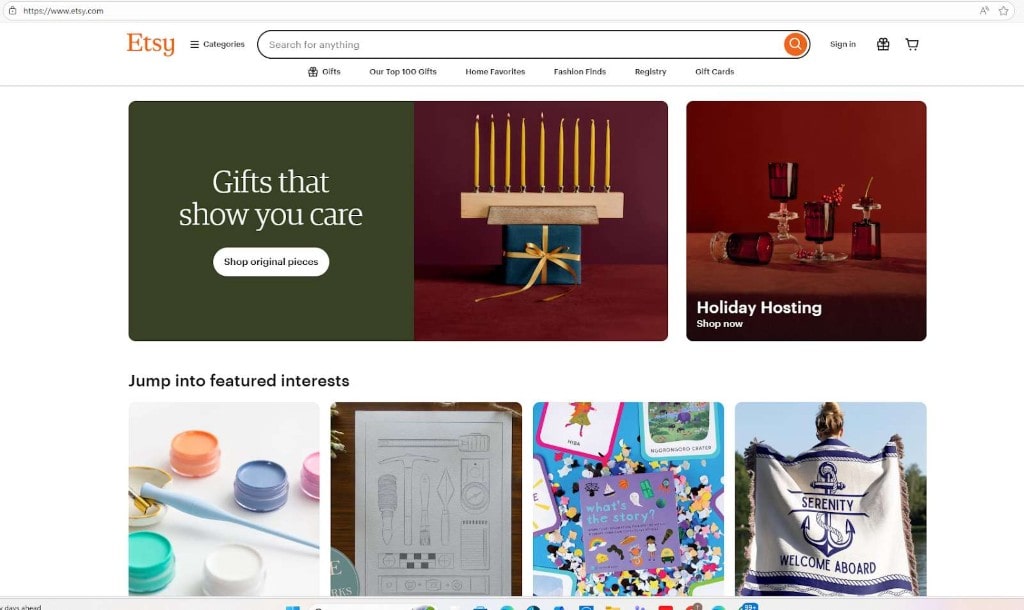
Entering Etsy can provide an additional revenue stream and expand brand visibility beyond Amazon and your website. Unlike traditional e-commerce marketplaces, Etsy emphasizes creative presentation, strong branding, and storytelling, giving sellers more freedom to express their brand identity through product photos, descriptions, packaging, and shop layout.
How to Open and Start Selling on Etsy
1. Create Your Etsy Account
To begin, visit Etsy.com and register for a seller account. Once logged in, navigate to “Sell on Etsy” and follow the setup prompts. You’ll be asked to choose your shop name, set your currency, and decide where you’ll ship your products.
2. Set Up Your Etsy Shop Profile
Your shop profile is the heart of your Etsy presence. Customize it with:
- A clean banner and shop logo
- A compelling shop bio that explains your brand story
- Policies for returns, shipping, and processing times
- High-quality product images that show your unique aesthetic
This section gives customers confidence and helps differentiate your shop in competitive categories.

3. Create Your Product Listings
Etsy listings allow for rich product storytelling. Include:
- Clear titles using strong keywords (Etsy search thrives on SEO)
- High-resolution images (multiple angles and lifestyle shots)
- Detailed descriptions explaining ingredients, uses, benefits, and brand values
- Tags and categories that help Etsy push your listings into relevant search results
Most importantly, the visual style of your listings greatly impacts click-through and conversion on Etsy, making aesthetic consistency a must.
4. Set Pricing and Shipping Options
Stay Ahead — Join the Pixel Insider List
Want more strategies on marketing, branding, technology, AI tools, or eCommerce growth?
Subscribe to get:
Etsy shoppers appreciate transparency and handmade value. When setting your pricing, consider:
- Product cost
- Packaging
- Time spent creating or curating the item
- Shipping fees and Etsy’s transaction costs
Offering Etsy’s “free shipping guarantee” (built into pricing) can increase search visibility.
5. Launch and Promote Your Shop
Once your shop is live, drive traffic by:
- Sharing on Instagram, TikTok, and Pinterest
- Offering launch discounts
- Using Etsy Ads to push your listings to the top of search results
- Optimizing your listings regularly as you learn what keywords customers use
Consistency is key — frequent posting, restocking, and updating products boosts your shop’s ranking.
Why Etsy Matters for Brands in 2025
Consumers on Etsy value authenticity, artisan-quality products, and relatable brands. Sellers who invest in creative presentation and strong branding often see higher conversion rates and repeat purchases. Most importantly, Etsy gives you the opportunity to connect with a niche community of shoppers who appreciate craftsmanship, thoughtful packaging, and limited-edition products — making it the perfect platform to expand your brand presence while maintaining a personalized shopping experience.
Section 6: Shopify Cost, Shop Pay, and Shoppay
For entrepreneurs who want independence from marketplaces, Shopify is the go-to e-commerce platform. It provides you with a fully customizable website, giving you complete control over your brand, customer data, and sales channels.
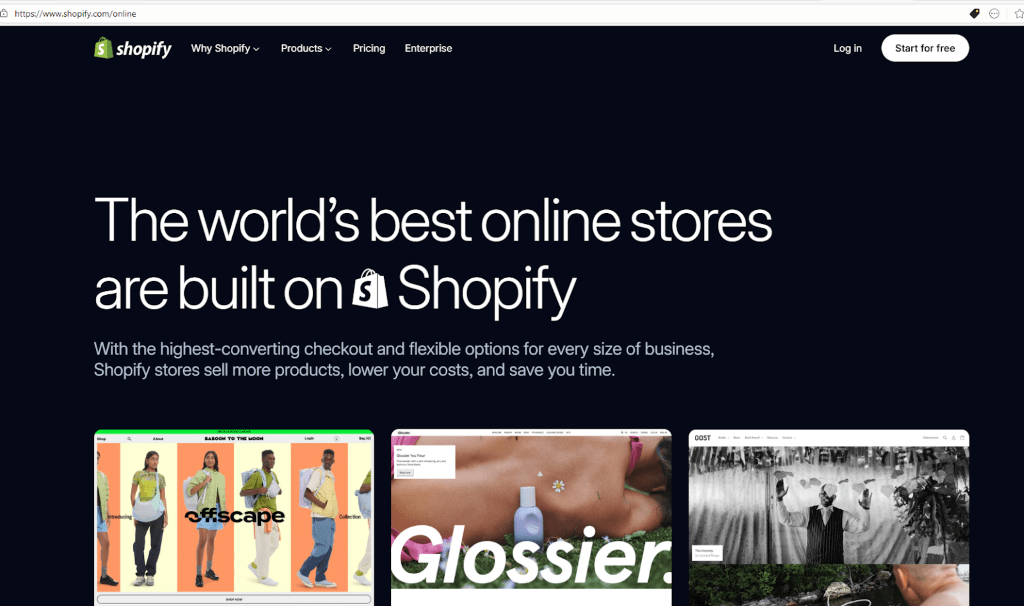
Shopify cost in 2025:
- Basic Plan: Around $39/month, ideal for new businesses and small-volume sales.
- Mid-tier: Around $79–$105/month, perfect for growing businesses with increasing sales.
- Advanced: Around $299/month, for large-scale operations with high sales volume.
Shop Pay & Shoppay:
- Fast checkout: This is an accelerated checkout service that saves customers' payment and shipping details for future purchases, leading to higher conversion rates.
- Higher conversion rates: The streamlined checkout process reduces cart abandonment.
- Integration with social media: Shop Pay integrates seamlessly with platforms like Instagram and Facebook, allowing customers to check out directly from social posts.
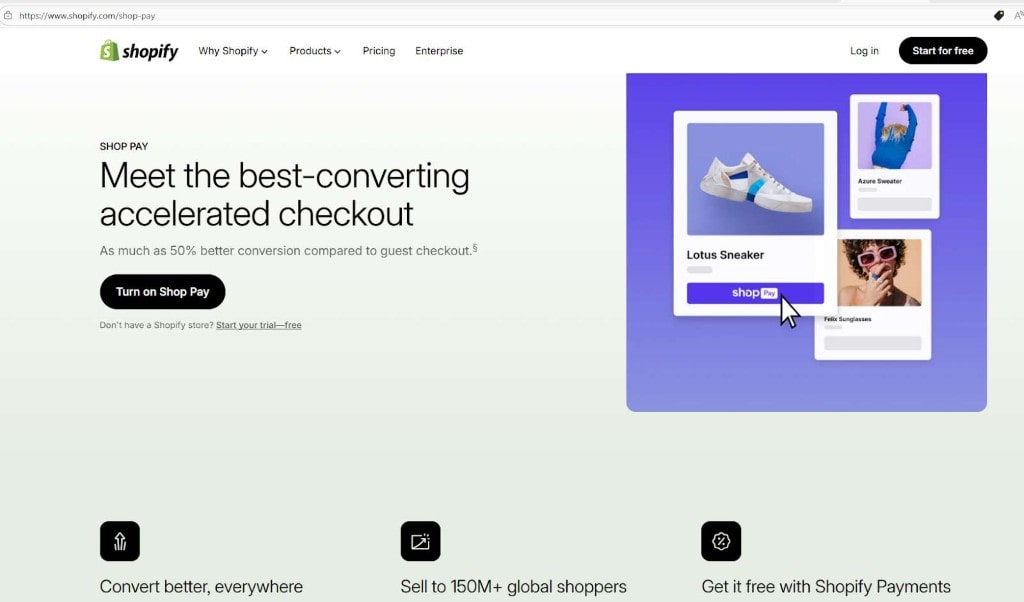

Section 7: How to Sell on Facebook Marketplace
In 2025, Facebook Marketplace has evolved into a major e-commerce channel that reaches millions of local and global users. For beginners, it’s a great, low-risk way to test products and build a customer base.
Steps to sell effectively:
- Take high-quality photos: Use clear, well-lit photos of your product from multiple angles.
- Write clear descriptions: Use keywords that your target audience would search for to make your listings more visible.
- Offer competitive shipping: Offer a range of shipping options or local pickup to attract different types of buyers.
Furthermore, Facebook Marketplace integrates with Shop Pay and Instagram Shops, making cross-selling and management easier. Most importantly, it’s often free to list products, which makes it an ideal channel for testing new products before investing in larger marketplaces.
Section 8: How to Use eBay UK and Germany for Global Growth
While Amazon dominates in the US, eBay remains highly relevant in 2025, especially in Europe. Learning how to use eBay UK and Germany for global growth can give your business a significant advantage.
Tips for global eBay success:
- Localize your listings: Translate your product listings into the local language and use the correct currency for that country.
- Offer international shipping: Use eBay’s global shipping program to simplify logistics and offer your products to a wider audience.
- Use eBay’s seller hub: The seller hub provides detailed analytics on your sales, helping you optimize your performance in different regions.
Furthermore, eBay’s mobile app makes managing orders easy, allowing you to stay connected to your store 24/7. In addition, repeat buyers on eBay often have a high level of loyalty. Most importantly, diversifying across eBay’s international marketplaces protects you against dependence on a single platform.
Section 9: eBay App, Purchases, and Orders
For beginners, the eBay app simplifies the process of managing your business on the go. It’s an essential tool for keeping track of your store and providing excellent customer service.
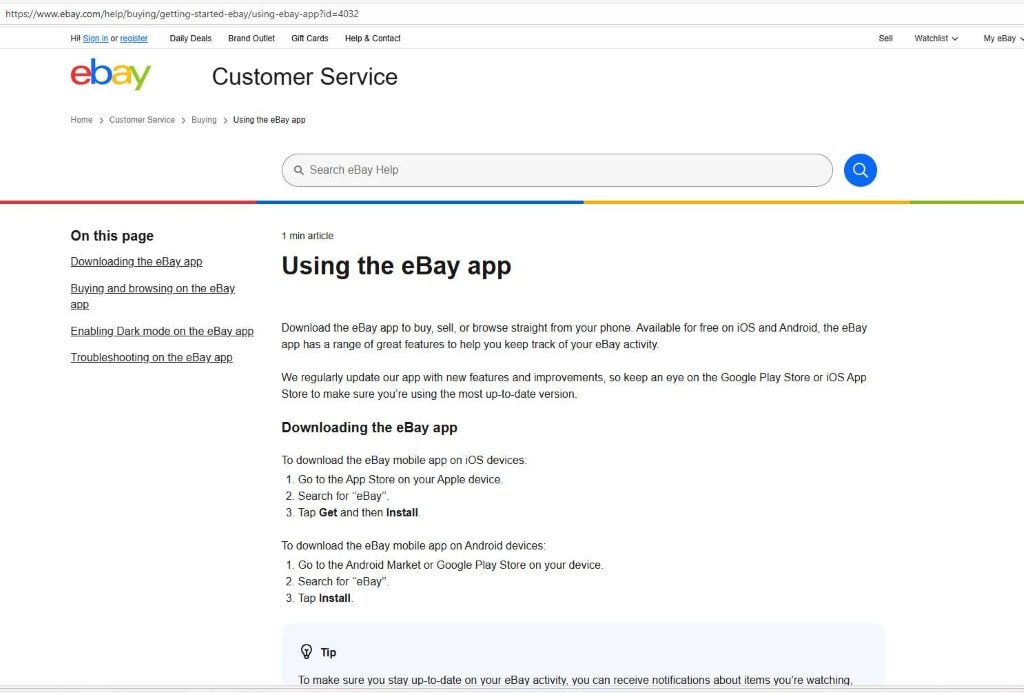
Features of the app include:
- Tracking shipments: You can easily track the status of all your shipments and update customers.
- Communicating with buyers: The messaging feature allows you to respond quickly to customer questions and resolve any issues.
- Managing returns: The app streamlines the process of managing returns and disputes.
Furthermore, having the eBay app keeps you connected to your store 24/7, which is crucial for quick problem-solving. In addition, a fast response time to inquiries and orders can significantly improve your seller ratings and increase your store's visibility. Most importantly, the app streamlines customer service, a critical component of any successful online business.
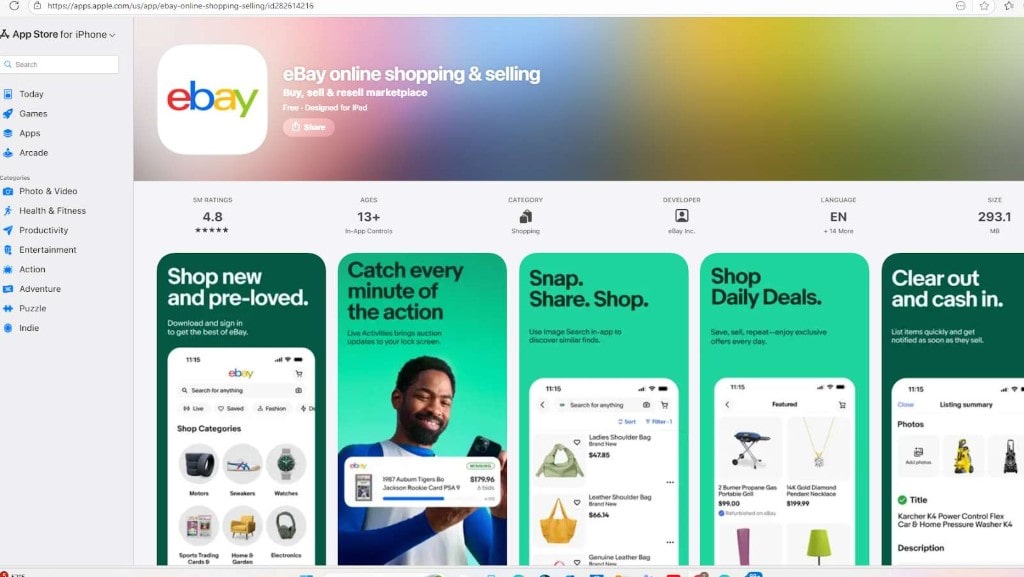
Section 10: Building a Multi-Channel Online Business in 2025
The smartest and most resilient entrepreneurs in 2025 don’t rely on a single channel for sales. Instead, they build a multi-channel online business by combining platforms like Amazon, Shopify, Facebook Marketplace, and eBay to maximize sales and reduce risk.
Benefits of a multi-channel strategy:
- Wider audience reach: You can reach customers on their preferred platform.
- Reduced risk: If one platform changes its policies or algorithms, your business is not entirely dependent on it for sales.
- Higher revenue potential: Selling on multiple channels can lead to a significant increase in overall sales.
Furthermore, using inventory sync software simplifies the logistics of multi-channel selling. In addition, data analytics tools can help you understand which platforms are performing best and optimize your strategy. Most importantly, a multi-channel approach is the future of a resilient and sustainable online business.
Best Online Business Models of 2025 — Comparison Overview
| Platform | Best For | Key Strengths | What It Solves | 2025 Opportunity |
|---|---|---|---|---|
| Amazon Dropshipping | Beginners & low capital startups | No inventory, wide product range | Eliminates storage & upfront investment | Easy entry but requires niche focus |
| Amazon FBA | Brand builders & long-term sellers | Prime shipping, automated fulfillment | Removes packing, shipping, and returns workload | Fastest way to scale globally |
| Amazon Canada Expansion | US sellers wanting international sales | Lower competition, strong demand | Access to new market without extra setup | Diversifies revenue streams |
| Amazon Storefront | Registered brands | Strong branding, cross-selling, customer trust | Creates a mini-website inside Amazon | Boosts brand authority & conversions |
| Etsy | Handmade, beauty, craft, aesthetic products | Creative branding + high-intent shoppers | Perfect for unique, design-driven items | Rapid growth for small brands |
| Shopify + Shop Pay | Independent brands wanting full control | Own website, customer data, social checkout | Reduces cart abandonment & boosts trust | Best for long-term brand expansion |
| Facebook Marketplace | Local selling & product testing | Free listings, fast exposure | Test product demand before scaling | Perfect for beginners validating ideas |
| eBay UK & Germany | Global expansion | Multilingual support, repeat buyers | Access to high-demand European markets | Strong opportunity in 2025 |
| eBay App | Mobile-first sellers | On-the-go order management | Real-time communication and updates | Higher seller ratings & faster operations |
| Multi-Channel Selling | Serious entrepreneurs | Wide reach, diversified risk, higher revenue | No dependence on a single platform | Most resilient business model in 2025 |
Conclusion
Starting an online business in 2025 is more accessible than ever. With powerful tools like Amazon dropshipping and FBA, Shopify with Shop Pay, Facebook Marketplace, Etsy and eBay, entrepreneurs can build thriving businesses from home with minimal capital.
Furthermore, the key to success is to focus on scalability, building a strong brand, and adopting a multi-channel selling strategy. In addition, learning how to create professional storefronts and leveraging trust signals can significantly boost customer loyalty and long-term growth.
Most importantly, success requires consistency, a willingness to adapt to new trends, and an openness to testing new platforms. The tools are affordable—the opportunity is global.
FAQ: How to Start an Online Business in 2025
What is the easiest way to start an online business in 2025?
The easiest way to start an online business in 2025 is by using an established platform with built-in traffic. Amazon FBA is a great option as it handles all the logistics, while selling on a platform like Facebook Marketplace is an ideal low-cost, beginner-friendly way to test products with a local audience.
What is FBA on Amazon?
FBA, or Fulfillment by Amazon, is a service where you send your products to Amazon's fulfillment centers. Amazon then handles all aspects of storage, packaging, shipping, and customer service for you. This allows you to scale your business quickly and provides your customers with the benefit of fast Prime shipping.
Is Shopify better than Amazon for beginners?
Neither is inherently better; they serve different purposes. Amazon offers immediate access to a massive customer base, making it easy to get initial sales. Shopify gives you more control over your brand, customer data, and profit margins. For a beginner, a hybrid model of selling on both platforms is often the most effective strategy.
How much does Shopify cost in 2025?
The cost of Shopify in 2025 varies depending on the plan you choose. The basic plan starts at around $39 per month, which is perfect for new businesses. As your business grows, you can upgrade to mid-tier or advanced plans, which range from $79 to $299 per month, to unlock more features and lower transaction fees.
Can I sell on eBay internationally?
Yes, you can sell on eBay internationally. eBay UK and eBay Germany are two of the largest international markets and are great for global expansion. To be successful, you should localize your listings with the correct language and currency and offer clear international shipping options.
What is Amazon dropshipping?
Amazon dropshipping is an e-commerce model where you list products on Amazon without holding any inventory. When a customer places an order, a third-party supplier ships the product directly to the customer. This method is popular because it has a very low upfront investment, but it also comes with tight profit margins and intense competition.
How do I create a professional Amazon storefront?
To create a professional Amazon storefront, you must first enroll in Amazon Brand Registry. Once approved, you can design a custom-branded page, upload your logo, and add curated product collections. An effective storefront helps build trust and brand recognition among customers.
What is Shop Pay and why is it important for my online store?
Shop Pay is a fast-checkout service for Shopify stores that saves customers' payment and shipping information. It is important for your online store because it significantly reduces cart abandonment and increases conversion rates. It is a key tool for providing a seamless checkout experience.
What is the benefit of a multi-channel selling strategy?
The main benefit of a multi-channel selling strategy is risk reduction. By selling on multiple platforms like Amazon, Etsy, eBay, and Shopify, you are not dependent on a single channel for revenue. This diversifies your audience and protects your business from policy changes or algorithm updates on a single platform.
Is it too late to start an online business in 2025?
No, it is not too late to start an online business in 2025. The e-commerce industry is still growing rapidly, and new niches and opportunities are constantly emerging. With accessible tools like Shopify and services like Amazon FBA, the entry barriers are lower than ever, making it a great time to start.
Like This Blog? Explore More from Pixel Commerce Studio
Dive into more insights across our most popular categories:






